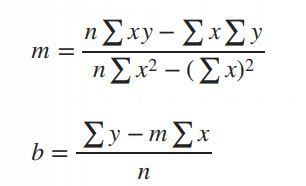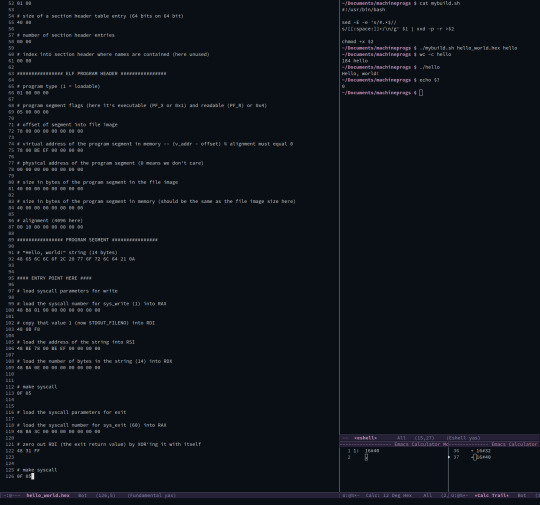#machine learning programming
Explore tagged Tumblr posts
Text

They call it "Cost optimization to navigate crises"
676 notes
·
View notes
Text
doing machine learning not in the grindset techbro future faang employee way but in the oracle of delphi bestowed with a gift to predict fates and futures under the moonlight kind of way
#csblr#stemblr#studyblr#classics#ancient greece#computer science#machine learning#codeblr#programming
400 notes
·
View notes
Text
I think with AI we kinda lost the plot, why am I always being advertised for another shitty generative AI that does basic shit any person can do themselves. No I don’t want to us AI to make a shopping list. Idk I think we should relegate that stuff to like, machine learning to predict protein structures or identifying cancer cells and stuff like that please
#and I have like a genuine interest in machine learning and programming#mostly in bio but still I’m just so confused about how we got here#ai
14 notes
·
View notes
Text
Coding: My Escape, My Obsession
Programming—ahh, what a paradox! Sometimes it’s an absolute thrill, and other times, it’s the most stressful thing ever. For me, coding isn’t just a skill; it’s my escape. Whenever life gets heavy, my mind instinctively drifts to programming. New ideas, fresh logic, endless possibilities—it’s like therapy but with syntax errors.
But somewhere along the way, this escape became a full-blown obsession. My four years of engineering? A blur of code, projects, and fixing bugs—mine and everyone else's. I was always working, always solving something. And now, when I look back, I struggle to find those carefree moments of pure fun. Sure, I enjoyed college, but every memory somehow loops back to programming.
I don’t regret it. I don’t claim to be a coding genius either—I’m still learning, still growing. But one thing’s for sure: programming has shaped me in ways I never imagined. It gave me purpose, resilience, and a language beyond words.
Yet, here’s what I’ve realized—life isn’t just about writing perfect code; it’s about writing a story worth remembering. And while programming will always be a part of me, I want to step beyond the screen, embrace new experiences, and create moments that don’t just end in a semicolon.
Because in the end, the best code I’ll ever write is the one that balances passion with life itself.
#programming#education#software engineering#lifestyle#programmer#coding#developer#career#java#quotes#machine learning
14 notes
·
View notes
Text
im not trying to sound like a luddite or anything but any time someone talks about using AI / chatGPT for a work/school task its like. you have teachers you have mentors you have friends you have other students you have colleagues and so on. "chat can proofread my work for me" so can another person with a fresh set of eyes. "chat can give me ideas for my essay" so can another person with their unique perspective on the subject. "chat can find me good articles to read" ask your prof . "chat wrote my paper for me" thank you for speaking the quiet part out loud stop killing the ghostwriting industry please
#i do come to this position as someone who was a ghostwriter for someone for a decent amount of time#and also as someone who does all these things for people. like proofreading and organizing appointments and all these automatable tasks#and also as someone who sounds like a bullshit producing machine learning program without trying. its the neuron divergents#except of course. i cost less fresh water and electricity and silicone harvested via child labor and all that#jokes aside. why are you replacing opportunities for human interaction with all this. yk?#my posts
8 notes
·
View notes
Text
I desprately need someone to talk to about this
I've been working on a system to allow a genetic algorithm to create DNA code which can create self-organising organisms. Someone I know has created a very effective genetic algorithm which blows NEAT out of the water in my opinion. So, this algorithm is very good at using food values to determine which organisms to breed, how to breed them, and the multitude of different biologically inspired mutation mechanisms which allow for things like meta genes and meta-meta genes, and a whole other slew of things. I am building a translation system, basically a compiler on top of it, and designing an instruction set and genetic repair mechanisms to allow it to convert ANY hexadecimal string into a valid, operable program. I'm doing this by having an organism with, so far, 5 planned chromosomes. The first and second chromosome are the INITIAL STATE of a neural network. The number and configuration of input nodes, the number and configuration of output nodes, whatever code it needs for a fitness function, and the configuration and weights of the layers. This neural network is not used at all in the fitness evaluation of the organism, but purely something the organism itself can manage, train, and utilize how it sees fit.
The third is the complete code of the program which runs the organism. Its basically a list of ASM opcodes and arguments written in hexadecimal. It is comprised of codons which represent the different hexadecimal characters, as well as a start and stop codon. This program will be compiled into executable machine code using LLVM IR and a custom instruction set I've designed for the organisms to give them a turing complete programming language and some helper functions to make certain processes simpler to evolve. This includes messages between the organisms, reproduction methods, and all the methods necessary for the organisms to develop sight, hearing, and recieve various other inputs, and also to output audio, video, and various outputs like mouse, keyboard, or a gamepad output. The fourth is a blank slate, which the organism can evolve whatever data it wants. The first half will be the complete contents of the organisms ROM after the important information, and the second half will be the initial state of the organisms memory. This will likely be stored as base 64 of its hash and unfolded into binary on compilation.
The 5th chromosome is one I just came up with and I am very excited about, it will be a translation dictionary. It will be 512 individual codons exactly, with each codon pair being mapped between 00 and FF hex. When evaulating the hex of the other chromosomes, this dictionary will be used to determine the equivalent instruction of any given hex pair. When evolving, each hex pair in the 5th organism will be guaranteed to be a valid opcode in the instruction set by using modulus to constrain each pair to the 55 instructions currently available. This will allow an organism to evolve its own instruction distribution, and try to prevent random instructions which might be harmful or inneficient from springing up as often, and instead more often select for efficient or safer instructions.
#ai#technology#genetic algorithm#machine learning#programming#python#ideas#discussion#open source#FOSS#linux#linuxposting#musings#word vomit#random thoughts#rant
7 notes
·
View notes
Text
they're shaking hands honest
(ai/machine learning generated animations)
14 notes
·
View notes
Text
HT @dataelixir
#data science#data scientist#data scientists#machine learning#analytics#programming#data analytics#artificial intelligence#deep learning#llm
11 notes
·
View notes
Text

Simple Linear Regression in Data Science and machine learning
Simple linear regression is one of the most important techniques in data science and machine learning. It is the foundation of many statistical and machine learning models. Even though it is simple, its concepts are widely applicable in predicting outcomes and understanding relationships between variables.
This article will help you learn about:
1. What is simple linear regression and why it matters.
2. The step-by-step intuition behind it.
3. The math of finding slope() and intercept().
4. Simple linear regression coding using Python.
5. A practical real-world implementation.
If you are new to data science or machine learning, don’t worry! We will keep things simple so that you can follow along without any problems.
What is simple linear regression?
Simple linear regression is a method to model the relationship between two variables:
1. Independent variable (X): The input, also called the predictor or feature.
2. Dependent Variable (Y): The output or target value we want to predict.
The main purpose of simple linear regression is to find a straight line (called the regression line) that best fits the data. This line minimizes the error between the actual and predicted values.
The mathematical equation for the line is:
Y = mX + b
: The predicted values.
: The slope of the line (how steep it is).
: The intercept (the value of when).
Why use simple linear regression?
click here to read more https://datacienceatoz.blogspot.com/2025/01/simple-linear-regression-in-data.html
#artificial intelligence#bigdata#books#machine learning#machinelearning#programming#python#science#skills#big data#linear algebra#linear b#slope#interception
6 notes
·
View notes
Text
We made a small game project!! It's a program designed to learn how to play Connect 4, based on the MENACE model. Its algorithm needs some work, so it's a very slow learner, but we're pretty proud of it so far! ^^
#game dev#gamedev#menace#matchbox educable noughts and crosses engine#machine learning#(not the generative kind)#programming#connect four#connect 4#summer post
3 notes
·
View notes
Text
It is wild how much the @dropoutdottv captions cannot handle someone saying "D and D". Any acronym, but that one is pretty egregious, considering, you know, everything. Watching a D actual play show now, apparently
#Dropout tv#Who or what does your captions because whoof#I love you but i do not love your captions#Craptions#Venting#Sam hire me to do your captions I'll be so much better than whatever machine learning is going on in there!!!#I watch hours of your programming anyway!!#This is problem across all of your shows!
15 notes
·
View notes
Text

This is part of a new project I am doing for a Facebook app that can alert someone when there is suspicious activity on their account, and block people who post rude comments and hate speech using a BERT model I am training on a dataset of hate speech. It automatically blocks people who are really rude / mean and keeps your feed clean of spam. I am developing it right now for work and for @emoryvalentine14 to test out and maybe in the future I will make it public.
I love NLP :D Also I plan to host this server probably on Heroku or something after it is done.
#machine learning#artificial intelligence#python programming#programmer#programming#technology#coding#python#ai#python 3#social media#stopthehate#lgbtq community#lgbtqia#lgbtqplus#gender equality
74 notes
·
View notes
Text

Starting to realize why people don't write binaries by hand anymore
#im learning a lot by doing#but boy is this some tedious nonsense#i mean sheesh#my thoughts#programming#computers#machine code#x64
19 notes
·
View notes
Text
"AI" this and "AI" that, NONE OF IT IS INTELLIGENT, WE HAVE NOT MADE INTELLIGENCE YET, WHY ARE WE LYING, DO WORDS MEAN NOTHING
#it's at best “machine learning” if it could even be considered learning#this is semantics but it's important semantics because words have meaning and we have to stop giving software more power than they deserve#I'm more on the side of “self-evolving programs” for what to call these things#like chat gpt is a self-evolving program which processes a database and simulates human speech based off that database#this is what being an english major has turned me into#artificial intelligence
3 notes
·
View notes
Text
No matter, What your background is, You must learn at least one programming language.
#coding#gamedev#artificial intelligence#html#machine learning#linux#programming#python#software engineering
13 notes
·
View notes
Text
What’s the Big Deal About Python?
If you’ve been around the tech world even for a minute, you’ve probably heard people raving about Python. No, not the snake, we’re talking about the programming language. But what’s so special about it? Why is everyone from beginner coders to AI researchers using Python like it’s their best friend? Let’s break it down in simple words.

Easy to Learn, Easy to Use
First things first, Python is super easy to learn. The code looks almost like regular English, which means you don’t have to memorize weird symbols or endless rules. If you’re just starting your programming journey, Python won’t scare you away.
For example, printing a sentence in Python is as simple as:

That’s it. No extra setup, no confusing syntax. It just works.
Used Everywhere
Python isn’t just for small scripts or learning projects. It’s everywhere, web development, data science, automation, artificial intelligence, game development, even robotics.
Big companies like Google, Netflix, and Instagram use Python behind the scenes to make their products work better.
Huge Library Support
One of the best things about Python is its rich library ecosystem. Libraries are like pre-written tools that help you do complex stuff without writing all the code yourself. Want to analyze data? Use Pandas. Want to build a web app? Try Django or Flask. Want to build a chatbot or train a machine learning model? There’s TensorFlow and PyTorch for that.
Great Community
Python has a massive community. That means if you ever get stuck, there’s a good chance someone has already solved your problem and posted about it online. You’ll find tons of tutorials, forums, and helpful folks willing to guide you.
Not the Fastest, But Fast Enough
Python isn’t the fastest language out there — it’s not meant for super high-speed system-level programming. But for most tasks, it’s more than fast enough. And if you really need to speed things up, there are ways to connect Python with faster languages like C or C++.
So, Should You Learn Python?
Absolutely. Whether you’re a student, a hobbyist, or someone switching careers, Python is a great place to start. It’s beginner friendly, powerful, and widely used. You’ll be surprised how much you can build with just a few lines of Python code.
2 notes
·
View notes